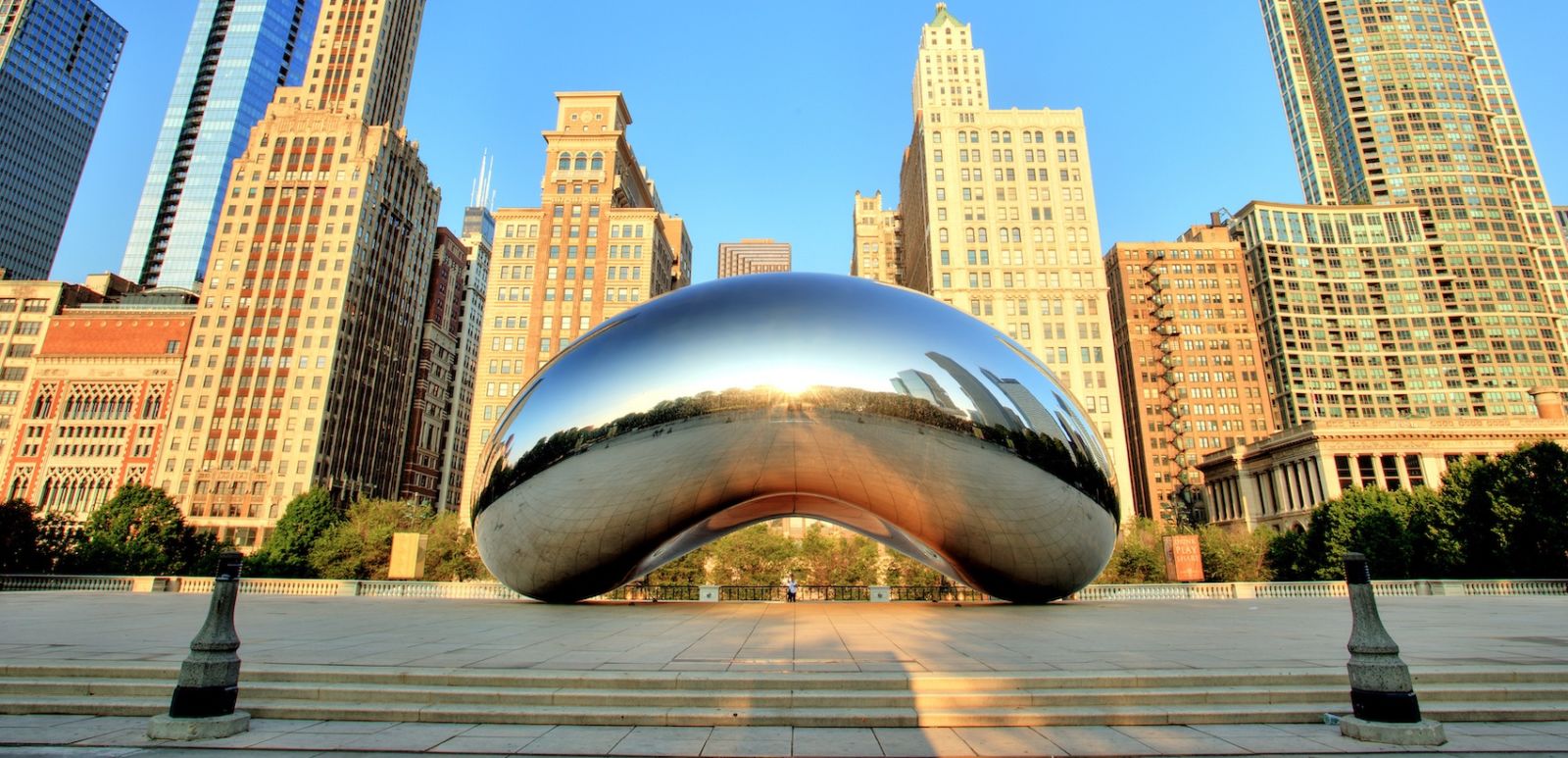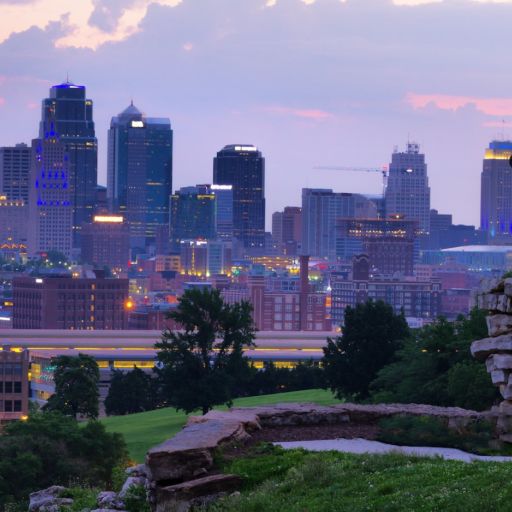“Why I Love” is a series of essays that pays tribute to American cities and states and the things we love about them.
The subway in San Francisco has advertisements for Illinois. People from the coasts forget Chicago is a city, so much so that it must put up strange advertisements that are only pale reflections of itself, devoid of all that brings it life — the autumn fire pits and summer festivals, dumplings and hot chocolate in the sparkling cold. The pictures don’t capture vegetarian soul food and Ukrainian flags and wide-windowed brick buildings full of light. I think, I told my friend, looking at a sad photo of the Bean through dingy subway windows, that Chicago is the most romantic city in the world.
I’ve wondered whether you really can be in romantic love with a city. I remember the first time I stepped into Chicago, two months before the pandemic, eight months before I moved there for a year and a half. The streets were wide and the air was cold and crisp and the light reflected off the buildings just so, and I knew at first sight that it was somewhere I would come to terribly miss.
When you’re in love, you imbue everything about the beloved with meaning, from the simple to the grandiose: going to a comedy show and the pond in Lincoln Park, walking around Millennium Park and the Halloween decorations at Navy Pier, eating at deep-dish and tavern pizza shops, going to pop-ups and museums and architecture tours. What I remember most is walking by the river and seeing the brilliance of the buildings in the sun.
When I visited Chicago nine months after I had left for California — my first time back since I’d abruptly departed the University of Chicago to pursue my dreams out West — I only wanted to bike and eat pizza. Along the lakeshore path in Hyde Park, a muraled building had been repainted and there was a new sculpture, a tree of animals. I swam in the painfully blue lake for the first time and had no desire to bike the two minutes from there to my old apartment, because it was no longer home. I don’t know if it ever was.
Chicago has changed in the last hundred years — it’s a city made by movement and migration — but the character of the city is eerily the same. Unlike New York, which allows people to remain themselves, brash and never-changing, Chicago takes you in and subtly, slyly, turns you into a Midwesterner. You still speak Spanish or Polish or Hindi at home, you’re still proud of your traditions — You dye the river green! You build a two-story outdoor mall filled with tea shops! — but parallel to all this, the city has taken your heart, and suddenly, all the world outside seems less like home.
Chicago is the greatest American city, I told a friend. Yes, he said. Chicago is what non-Americans imagine New York to be.
In the autumn, when I was about to leave, I got cookies and ice cream with my friend in the evening and read her Carl Sandburg’s “Chicago” poem. Everything was shockingly brilliant that autumn — the trees on the University of Chicago’s campus had a sort of ethereal quality about them, and the wind stirred the fallen leaves like brittle bones.
Hog Butcher for the World,
Tool Maker, Stacker of Wheat,
Player with Railroads and the Nation’s Freight Handler;
Stormy, husky, brawling,
City of the Big Shoulders.
I said, it’s incredible — the poet and everyone who lived in this city are dead now, but it retains the same character. I’ve never been in a place like this.
I biked over a thousand miles in Chicago during the pandemic. It became meditative, almost obsessive, something I replayed in my head while falling asleep. Here was my underpass with graffiti written and scrubbed out; here were the concrete barriers; here was the park stretched out for a view of the city. The lake was a different shade every day: impossibly blue, storm-cloud gray, almost turquoise, reflecting thunderstorms and snow and the shadows of seabirds. This is how I got to know Chicago, biking the same paths until they were worn to the ground, dreaming of love.
Come and show me another city with lifted head singing so proud to be alive and coarse and strong and cunning.
I’ve started to miss seasons since I moved to San Francisco. It was so easy to count the passage of time in Chicago: October’s fallen leaves in Oak Park, winter festivals and endless wine, the long August days where, on the beach and Lake Shore Drive at sunset, it almost felt like California.
Under the terrible burden of destiny laughing as a young man laughs.
Perhaps you can be in love with a city, but it must be unrequited. The city never changes: It’s ignorant that it was born of fire, ignorant of the battles it has lost. Some days I wonder whether in another life, I am still biking along the lakefront, in awe of the ever-changing color of the water. Some days, when I walk up hills in San Francisco in the perfect weather, I imagine the cold. The city doesn’t care.




